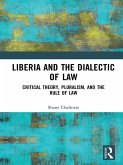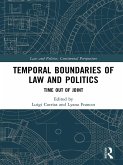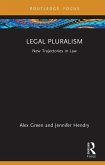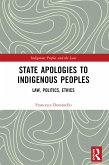It is the very condition of modernity that an institution cannot depend on a god, tradition, or any other transcendental source to secure its foundations, which thereby come to rest upon - or rather in, and through - its subjects. Never wholly separated from its subjects, and yet never identical with them: this contradictory condition provides a way of seeing how modern law gives form to life, and how law takes form, enlivened by its subjects. By driving Theodor Adorno's dialectical philosophy into the concept of law, the book shows how this contradictory condition enables law to become instituted in ways that are hostile to its subjects, but also how law remains open to its subjects, and thus disposed towards transformation. To flesh out an understanding of this contradiction, the book examines the making and remaking of 'Liberia', from its conception as an idea of liberty at the beginning of the nineteenth century to its reconstruction at the beginning of the twenty-first with the assistance of an international intervention to 'establish a state based on the rule of law'. In so doing, the book shows how law is at the epicentre of a colonising power in Liberia that renders subjects as mere objects; but at the same time, the book exposes the instability of this power, by showing how law is also enlivened by its subjects as it takes form in and through their lives and interactions. It is this fundamentally contradictory condition of law that ultimately denies power any absolute hold, leaving law open to the self-expression of its subjects.
Dieser Download kann aus rechtlichen Gründen nur mit Rechnungsadresse in A, B, BG, CY, CZ, D, DK, EW, E, FIN, F, GR, HR, H, IRL, I, LT, L, LR, M, NL, PL, P, R, S, SLO, SK ausgeliefert werden.









